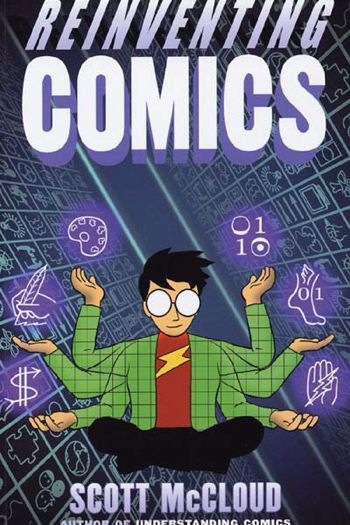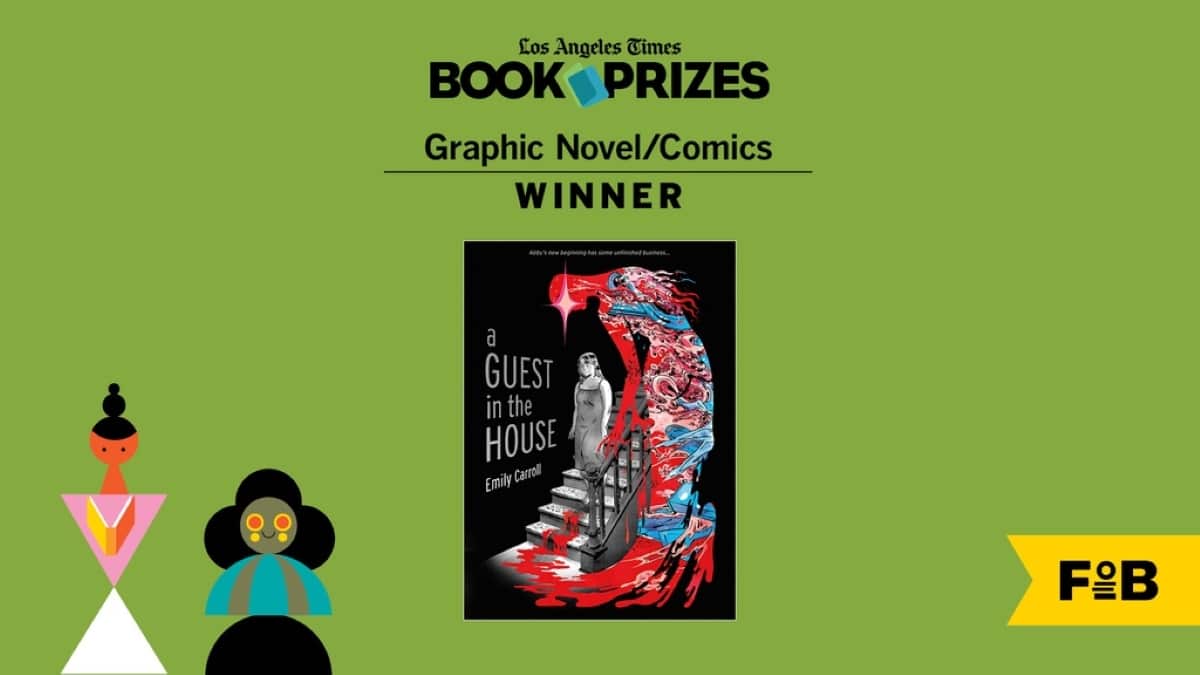Shaenon Garrity’s webcomics column debuts at the new online Comics Journal and gives a nice sense of perspective:
In the end, everyone talking about webcomics in 2003 was wrong. Experimenting with the vast visual and structural possibilities of the digital realm, as McCloud dreamed, has turned out to be less popular than doodling gags that readers can send around to their friends, or, barring that, stuff with furries. Webcomics didn’t whore themselves out to telecom companies because it was the only way to drive traffic; they whored themselves out to video-game companies because webcartoonists are nerds. Serializer.net hasn’t updated since 2007, and blogs are probably not even a thing anymore. Now you have to whore for iPad.
She also wonders if a Bill Blackbeard for Webcomics is necessary since so much that is on the web is entirely ephemeral and can disappear in the blink of an eye. We’d argue: yes. The Wayback Machine isn’t enough. Look at Tokyopop’s website — a couple of no-follows and you’re lost forever.





“Webcomics didn’t whore themselves out to telecom companies because it was the only way to drive traffic; they whored themselves out to video-game companies because webcartoonists are nerds.”
So if someone does business, Shaenon Garrity deems them a whore. Some people that write about comics talk a lot of shit sometimes. They don’t make anything, or contribute anything — just label people.
And if you make a web comic you must be a nerd? C’mon, that’s not journalism, that’s puerile nonsense. The fact is there are people of all stripes making web comics out there, some of them are quite good. Some of those web comics may have even been made by someone who may fit Garrity’s definition of a nerd. So what? What they should be called is a cartoonist. Did anyone ever call Charles Shultz a nerd? Charles Addams? Chester Gould? I never heard it mentioned — nor do I care.
Most of the people making webcomics are nerds. Non-pejorative “nerds.” Self-identified “nerds.” Those who do not identify as “nerds” really should at the very least understand the context in which the term is commonly used in comic-land. It’s clear to ME that the exerpt isn’t meant as an insult or a term of demeaning.
Not for nothing, Garrity is one of the sharpest, most astute bloggers about comics in general. Not saying that you must agree with her conclusions, but maybe take one teaspoon of “in-the-intended-spirit” and another teaspoon of “know-your-subject.”
And Shaenon Garrity contributes a LOT to comics culture. Both as a cartoonist and as a blogger. Suggesting otherwise is to suggest that this topic of webcomics history is more vital than previously suspected.
THAT SAID: I’m glad this topic has come up! One of my personal desires is to see a more firm and substantial living history of webcomics to be written. Preferably in print, really. Because to be realistic, the web IS ephemeral.
I want to see more people talking in detail about what is and isn’t happening in the real world of contemporary self-directed (indie) comics. I fear that the past decade will be wiped out one day when the internet transforms into something else and we’ll have a generation of comics just reduced to ghosts.
OR SOMETHING.
I hope this becomes a big deal.
Sounds like you’re a typical “citizen,” reading a small excerpt of an article and jumping to wrongheaded conclusions based on your preconceptions. Try reading the actual article before if you want to make an informed comment about it.
I suspect there are many “webcomics Bill Blackbeards” out there hunting & gathering in anonymity. We just don’t know who they are. Yet.
CitizenCliff, Shaenon was referring to a quip that Gary Groth made about webcomics. If you read the entire article, it will make sense.
And like it or not, whoring IS business!
You also misunderstand what she is saying about “nerds”. I would suggest reading the entire article, but her point is that video-games gave a huge crossover audience to webcomics that allowed them to thrive even with “questionable content” (sorry, webcomic joke).
To say that she is not contributing anything to comics is simply ignorant. She is a writer and artist who has worked with some great people and created numerous (award-winning) comics. To say that she, and critics in general “…don’t make anything, or contribute anything — just label people” is completely false, and you are in fact doing the very thing you decry. Her article is about taking on the task of preserving webcomics history. She creates, she critiques, she is archiving and she is contributing more than anyone I can think of offhand.
You’re right — I should’ve done my homework. My back is broad — I stand corrected. I was not familiar with her work.
I just hear or read of this nerd talk and I think to myself, no wonder the rest of the world doesn’t take comics serious as an art form. I don’t hear photographers, sculptors, or painters referring to themselves or other artists as nerds. I wish words like “nerd” or “geek” weren’t automatically attached to an art form that I love.
As for whoring — I don’t see artists doing business as whoring. Business, in this case is making a living through creating something. If that means licensing out one’s work for T-shirts or video games or TV shows or coffee mugs, how is that whoring? To me, that’s being successful. It means a large audience wants more of that property in their lives that an artist has created in a comic. I never held it against Schultz for the Met Life commercials — I never felt it never diminished his genius.
Citizen Cliff’s response is a reminder that I need to spend a little more time setting things up for those who came in late.
No worries or hard feelings! The pull quote out of context does imply the things you point out.
Yes, whoring is used as an all-too convenient metaphor. As a comics artist, I see absolutely nothing wrong with promoting your work through a variety of means. As artists, we loose our integrity when we compromise our work past our comfort level… and since that’s a different place for everyone, no artist can ever be criticized for this except by their own conscience.
Maybe the “nerd” label will disappear in some distant future? It is sad that comics come with a certain stigma.
I don’t hear photographers, sculptors, or painters referring to themselves or other artists as nerds.
You should hang out with more photographers. Or at least, hang out with more honest ones.
Also: 75% of my own webcomics have vanished into the ether. That’s okay, because 95% of those were shyte and the remaining 5% can be redrawn if need be.
This is something I haven’t really taken into consideration. I was always concerned about unseen comics on paper, but we’re entering a new paragrigm with save files.
In the early 2000’s, I saw various webcomics that took obvious influences from Bob & George and 8-bit Theater, yet apart from those founders, they’ve practically vanished from history. Thankfully, some fancomics have managed to stay archived here. Most other sites aren’t so lucky.
http://bobandgeorge.com/downloads/
One thing that I liked about some of these comics was that when they were released, they had a cute title. However, those titles were later forgotten and left out, much to my dismay. This is another area that’ll require certain computer skills from hackers, who’d have to delve deep into the author’s archiac databases to find their written history in order to find that slim sentence that’d gone by almost unnoticed. Good luck guys!
And that’s not even taking into consideration that some webcomics had a very short lifespan. Even accounting for the aborted ones, how would you even try to compile a comprehensive collection that would easilly fit each comic into one convenient package? The answer is – you can’t. They were designed free of restrictions, editorial mandate, and formulatic rigidity. Thus, there would be no overall similarity betwen them. Chances are that some of these authors may also feel embarassed at their early efforts and gone to the trouble of erasing everything they’ve done, so no one will have to suffer seeing their stuff ever again.
That’s not even taking into consideration strips that’ve been changed, or redrawn due to personal preference. There was an alternative “talkier” version of the 282nd episode of Secret of Mana Theater that’s no longer up. It’s fine, since it was originally fine enough for the emotional impact alone, but there could be some people who’d be curious to see what it was like. It was also around that point that the author had written themselves into a corner, and had no idea where to go from there. (It’s been 3 years since the last update, and I despaired of ever seeing more, especially since the old stuff was down for ages, but it seems to be back and running again now)
And that’s not even taking Newgrounds Flash animations in account…
http://www.manatheater.com/archive.html
I kind of welcome a contrarian view of webcomics, it’s easy to get swept away by the formal potential and not look at the content.And her point about a webcomics historian is really interesting as it highlights the fact that the web has to some degree allowed us to continue the tradition of lawlessness in comics beyond the comics page in the paper and minicomics.